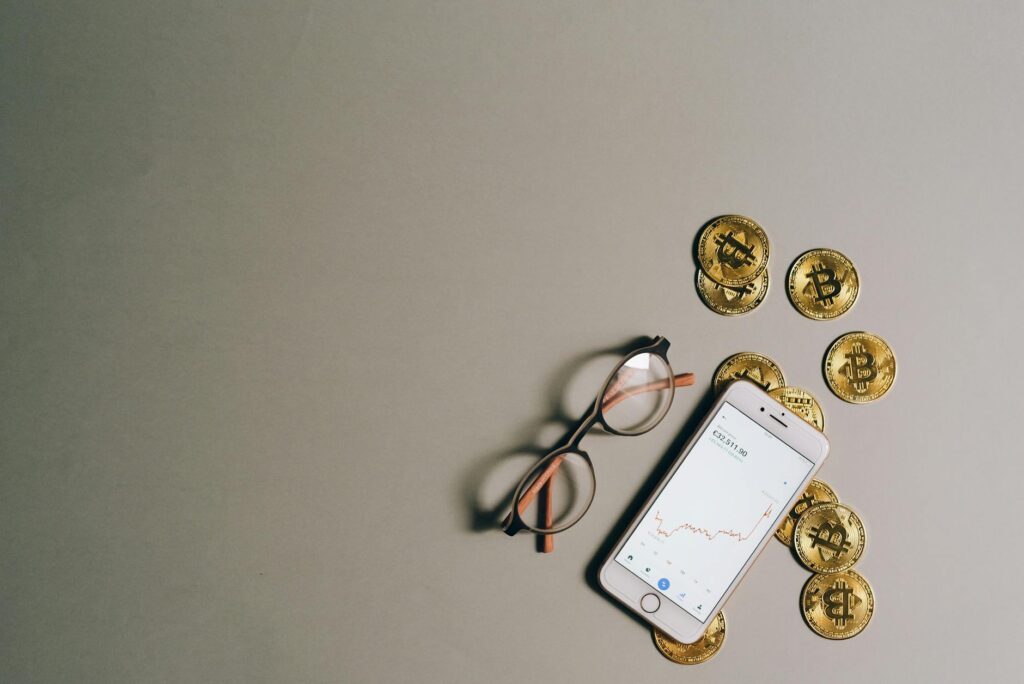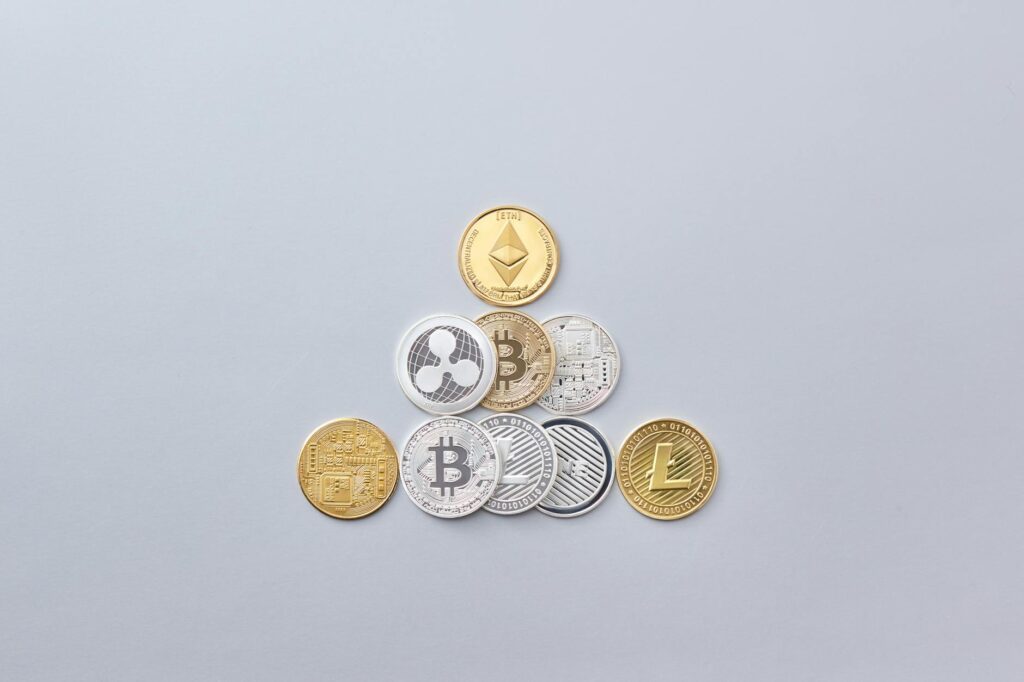The World Feels Shaky. Is Your Money?
Turn on the news. Scroll through your feed. It’s a relentless barrage of headlines about trade disputes, new sanctions, regional conflicts, and central banks spinning up the money printers yet again. It feels like the ground beneath our feet is constantly shifting. For generations, we’ve placed our trust in a global financial system built on powerful institutions, national currencies, and a complex web of agreements. But what happens when that trust begins to fray? This isn’t just an abstract economic debate; it hits home, right in our bank accounts. In this turbulent landscape, the case for decentralized money is moving from a niche tech curiosity to a vital, real-world necessity.
We’re not just talking about Bitcoin prices going up or down. We’re talking about a fundamental shift in how we perceive value, ownership, and financial freedom. When governments can freeze assets with a keystroke and inflation silently eats away at your life’s savings, the idea of a financial system that operates outside the control of any single entity becomes incredibly compelling. It’s a lifeboat in a stormy sea. This isn’t about predicting the future; it’s about preparing for a reality where the old certainties are no longer certain at all. The very instability that makes headlines is unintentionally building the strongest argument yet for a new kind of money.
Key Takeaways
- Geopolitical Triggers: Events like international sanctions and military conflicts expose the vulnerabilities of the centralized, state-controlled financial system.
- Erosion of Savings: Unprecedented government spending and money printing to manage crises are leading to persistent inflation, devaluing traditional currencies and savings.
- The Power of Control: The ability of governments to freeze bank accounts and impose capital controls, as seen in various global events, highlights the risk of not having true ownership over your assets.
- A Parallel System: Decentralized money offers a permissionless, censorship-resistant, and global alternative that cannot be unilaterally controlled or debased by a central authority.
The Cracks in the Foundation of Traditional Finance
For most of our lives, the financial system has been like the plumbing in a house—we don’t think about it until it breaks. It just works. You swipe your card, you get a direct deposit, you send a wire transfer. Behind this seamless experience lies a massive, centralized infrastructure: central banks like the Federal Reserve, commercial banks like Chase or HSBC, and payment networks like SWIFT. They are the gatekeepers. The guardians. The rule-makers.
And that’s precisely the problem. Centralization creates single points of failure and control. Your access to your own money is not a right; it’s a permission granted to you by these institutions. This permission can be revoked. Think about it. Your account can be frozen due to a legal dispute, a suspected fraudulent transaction (even a false positive), or, increasingly, for political reasons. The system is built on a foundation of trust—trust that the gatekeepers will act in our best interests. But what we’re seeing globally is a rapid erosion of that very trust.
Every time a government bails out a failing bank with taxpayer money, prints trillions of dollars to paper over economic cracks, or uses the financial system as a weapon against its own citizens, a little bit of that trust dies. It’s not a sudden collapse, but a slow, creeping realization that the system might not be as robust or impartial as we once believed. It’s a system designed for a more stable, predictable world. And that’s not the world we live in anymore.

When the Rules Change Overnight: Sanctions and Seizures
Nothing exposes the power of financial gatekeepers like sanctions. When Russia invaded Ukraine, the Western world responded by kicking major Russian banks out of the SWIFT network and, most shockingly, freezing nearly half of Russia’s central bank reserves held abroad. Hundreds of billions of dollars. Gone. Overnight. Regardless of your political stance, that event sent a shockwave through every central bank in the world. The message was clear: your national savings are only yours as long as you play by the rules of the countries whose currencies you hold.
But this isn’t just a problem for nation-states. It’s a problem for individuals. Remember the Canadian trucker protests in 2022? The Canadian government, in an unprecedented move, invoked emergency powers to freeze the bank accounts of protesters and even those who donated to their cause, all without a court order. People who had done nothing more than make a small, legal donation suddenly found themselves cut off from their own money. It demonstrated that financial censorship is not a theoretical risk confined to authoritarian regimes; it can happen in a modern Western democracy.
And then you have capital controls. In countries like Argentina, Lebanon, and Nigeria, citizens have faced strict limits on how much of their own money they can withdraw or convert into foreign currency. As their national currencies collapse, their savings are trapped, evaporating before their very eyes. They followed the rules, saved their money in a bank, and were punished for it. These aren’t isolated incidents. They are symptoms of a system where your property rights are conditional.
Inflation: The Silent Wealth Thief
While financial censorship is a sudden, shocking event, inflation is a slow, methodical grind. It’s the unseen tax that punishes savers and rewards debtors. In response to the 2008 financial crisis and the COVID-19 pandemic, central banks around the world have engaged in an unprecedented experiment of monetary expansion. They’ve printed trillions of dollars, yen, and euros to stimulate their economies. The consequence? The money in your bank account buys less today than it did yesterday, and it will buy even less tomorrow.
Your 2% interest rate at the bank feels pretty meaningless when official inflation is running at 5%, 6%, or even higher. You are losing purchasing power just by holding cash. This forces people to become investors, pushing their money into riskier assets like stocks or real estate simply to stay afloat. It’s a treadmill you can’t get off.
This debasement of currency is a direct result of its centralized nature. A small committee of people at a central bank decides the fate of your savings. They can choose to devalue your money for what they deem to be the greater good of the economy. You have no say in the matter. It’s a feature, not a bug, of the fiat currency system.
“Bitcoin is a lifeboat for people in countries with high inflation. It’s an escape hatch from a burning building. For the rest of us, it’s a fire extinguisher.”
This quote perfectly captures the dual role of hard, decentralized assets. For some, it’s a tool of desperation. For others, it’s an insurance policy. As trust in the long-term stability of fiat currencies wanes, the search for a store of value that cannot be arbitrarily inflated becomes more urgent than ever.
The Powerful Simplicity of Decentralized Money
So, how does decentralized money offer a solution to these very real, very human problems? It’s not about magic internet money. It’s about a fundamentally different architecture for finance, built on principles that directly counter the weaknesses of the traditional system.

The Core Properties of an Alternative System
Let’s break down what makes this technology so compelling in the current geopolitical climate. It’s not about getting rich quick; it’s about preserving wealth and freedom.
- Censorship-Resistance: There is no CEO of Bitcoin. There is no central server to shut down. Transactions are validated by a global, distributed network of computers. No single government or corporation can stop you from sending or receiving value. Your transaction might be for a cup of coffee or a donation to a political cause they disapprove of—the network doesn’t know and doesn’t care. It’s truly permissionless.
- Seizure-Resistance: As long as you control your private keys (the cryptographic password to your funds), you and only you can access your money. It cannot be frozen or seized by a bank or government without your consent. This puts the power and responsibility of ownership squarely back in the hands of the individual. The phrase “be your own bank” is not just a slogan; it’s the operational reality.
- Global and Borderless: Decentralized money operates on the internet, which doesn’t care about national borders. You can send value from Toronto to Tehran as easily as you can send an email, without needing to go through multiple intermediary banks, pay exorbitant fees, or wait for days for the transaction to clear. It’s a single, global financial rail for everyone.
- Verifiable Scarcity: Unlike national currencies, which can be printed into oblivion, many decentralized currencies like Bitcoin have a fixed, transparent, and programmatically enforced supply. There will only ever be 21 million Bitcoin. This absolute scarcity makes it a compelling long-term store of value—a potential hedge against the inevitable debasement of fiat currencies. It’s digital gold.
These properties are not just theoretical. We see them in action every day. Ukrainian refugees have used crypto to carry their wealth across borders when the banking system failed. Activists in Nigeria used Bitcoin to fund protests after their local bank accounts were shut down. Ordinary people in Argentina are using digital dollars (stablecoins) to protect their savings from hyperinflation. The use cases are growing because the problems are growing.
Conclusion
The world is not getting any simpler or more stable. The trend towards geopolitical friction, economic nationalism, and a breakdown of trust in institutions seems to be accelerating. In this environment, relying solely on a financial system that is entirely controlled by those same institutions is a risky proposition. It’s like having all your eggs in one, increasingly fragile, basket.
Decentralized money is not a panacea. It’s volatile, the user experience can still be complex, and regulation is an evolving landscape. But it represents something new: a choice. It’s a parallel financial system that anyone with an internet connection can access. It’s an insurance policy against institutional failure and monetary debasement. It’s a tool for financial self-sovereignty in an age where that concept is under threat.

The more unstable the world becomes, the more the core value proposition of a neutral, borderless, and censorship-resistant form of money will shine. It’s no longer a question of *if* it will be relevant, but a question of how quickly people will realize they need it.
FAQ
Isn’t cryptocurrency too volatile to be a safe haven?
This is a valid concern. On a day-to-day basis, assets like Bitcoin are far more volatile than the US Dollar. However, when you zoom out, the picture changes. For citizens in countries with hyperinflation, Bitcoin’s volatility is preferable to the certainty of their national currency going to zero. The argument for it as a ‘safe haven’ is less about short-term price stability and more about its long-term properties as a store of value that is immune to debasement and seizure, which are risks that traditional assets face.
Is decentralized money just for criminals and illegal activity?
This is a common, outdated narrative. While any financial tool can be used for illicit purposes (the US Dollar is still the primary choice for criminals), the vast majority of cryptocurrency transactions are for legitimate investment, speculation, and wealth preservation. The transparent nature of most public blockchains actually makes them poor tools for criminals seeking anonymity, as transactions are permanently recorded and traceable.
Do I need to be a tech expert to use decentralized money?
Not anymore. In the early days, yes, it was quite technical. Today, however, user-friendly mobile apps and exchanges have made it significantly easier to buy, sell, and store digital assets. While it’s crucial to educate yourself on security best practices (like managing your own keys), the barrier to entry has fallen dramatically. If you can use a mobile banking app, you can use a modern crypto wallet.


